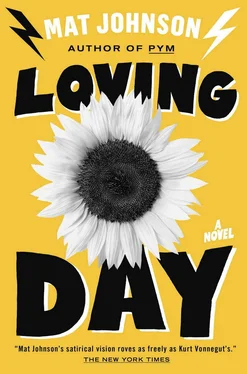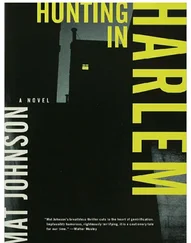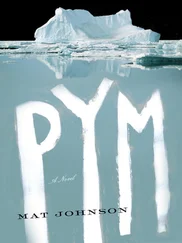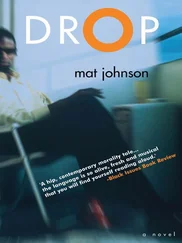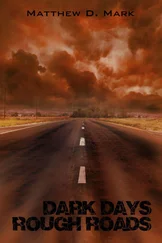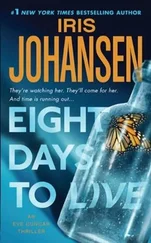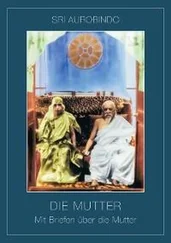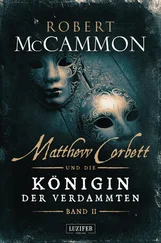“Okay. So is he leaving the other woman?”
“Thanks for the whole faux boyfriend thing. It worked. Men are so possessive.”
“Right, but is he leaving the white woman?”
“I can rescue this,” Tosha answers by not addressing my questions at all. “I just have to give him what he wants. It’s that simple. He wants nurturing: I give him nurturing. That’s what a wife is supposed to do. No biggie. That’s the only thing I can do. I can’t just leave. I want to. I’m so sick of his shit. But the kids,” Tosha says, and lets the sentence fragment explain itself.
“He already left. If he leaves her and comes back to you just out of duty, do you really want him?” I ask her, and she avoids me by going to the fridge, pulling out a bottle of wine, and pouring it all the way up to her glass’s edge. “You can end something that’s hurting you,” I answer for her. “You can. You’re allowed.”
“Well, you are the expert on divorcing,” Tosha tells me, but there’s no malice in it.
“I am.”
“Divorce isn’t the answer for everyone. Every problem looks like a nail when you’re a hammer.”
“Yo, some problems are fucking nails.”
Tosha pours me a glass too, a shallower one. I pull out my phone, go to YouTube and Tal’s video, and in explaining it give us both a chance to talk about something else.
“Crackheads,” is what Tosha says when it’s done.
“That’s what I said!” Tosha gets me. We know. We know Germantown. And we know there is nothing exotic here. We know Philly.
“They must have had a ladder or something. Who knows? They’re crackheads. Or meth heads — one of them’s white, you never know, she could have hooked that brother. Probably trying to break in through the second-floor window.”
“You can’t see in the tape too well, but they did look like they were fucking. It was crazy.”
“Crackheads are crazy. You definitely got a crackhead problem.” Tosha walks me back out to the couch, lies down on it. I follow, force her to stay in the moment.
“No, I don’t have a problem, the Mélange Center for Multiracial Life has a problem. Once we do this deal, we’re gone. Tal’s off to Washington, and I’m free to follow.” It’s this that gets Tosha to turn around.
“That’s who you’re selling to? Are you serious? They’re going to be here forever?”
“Okay, they’re a little kooky, granted, but they’re harmless. Nobody cares about their little Mulattopia. Nobody is even going to notice them.”
“Did you see how many views it got?”
I didn’t. I pull my phone back out, scroll down the page. It now says 2,771 over a long green line.
“Warren. Come on. You’re really going to let those Uncle Toms stay here permanently, in our neighborhood, pumping their Oreo bullshit?”
“That’s not how they are — actually some are sunflowers. They just believe—” It’s a wasted effort, only managing to bulge Tosha’s eyes wider in annoyance the more I talk. She just doesn’t want to hear it. Even more, she can’t hear it: she’s made her decisions on race, on what it is and what it most certainly is not, and all other discussions on the topic she registers as an attack on her reality. “Look, I know it’s hard to be open-minded about this, be there’s no choice: the moment is changing. Black people aren’t used to not having the final say on race in America; it’s uncomfortable.”
“What the fuck did you just say to me?”
“I’m just saying, you are used to having the moral high ground on black and white issues, so it’s understandably upsetting when another group comes in and redefines who we are. I know it doesn’t just affect mixed people, it affects the whole black dynamic. I get it.”
“What is this ‘you’ bullshit?”
“I’m just saying they’re kooky, but they’re not crazy. They have some valid goals. They’re just trying to change things so they’re better for mixed people.”
“What mixed people? They’re black. If these Oreos are trying to change things so that they’re not really black, how does that help anyone besides themselves? We’ve got black boys being used for target practice by white cops out there, we’ve got a prison system overflowing with victims of white judgment. We have a crisis. Right now. Not in the eighteenth century, not in the civil rights era, but right now. How does them quitting blackness help the Trayvon Martins out there? How does it help the Michael Browns? The Renisha McBrides, and all the black women out there struggling to hold it down? How does running away from blackness not make that worse?”
“That’s a false equivalence. Having people acknowledge all of their ethnic heritage doesn’t mean they’re abandoning social justice.”
“But they’re not just ‘acknowledging.’ They’re trying to challenge the basic fiber of the African American identity. These people, these sellouts you have living up in your house, they’re forming their own exclusive community. That’s not ‘acknowledging,’ that’s a cult. Somebody needs to call out this nonsense. It’s bad enough that you’re messing with that foolishness, but you got your own daughter in that mess.”
“It’s been good for her,” I try, but Tosha isn’t trying to hear me.
“Warren. I love you like a brother, in every sense of the word. But you are lost right now. You got your own daughter worshipping crackheads like they’re miscegenation angels. What kind of crazy Oreo shit is that?”
—
I’m so worked up on the walk through the dark back to Loudin that I’m not even worried about getting jumped. There are things I think of now to say to Tosha — mainly, I am not an Oreo! I am a sunflower! I think this and an older part of me goes, No Negro, you’re a black man. A very pale black man, a very pale, very confused black man, and maybe this has gone too far. Maybe I am lost. I got divorced, and then my dad died, and then Tal came, and crackheads, and then Sunita Habersham, and maybe I got a little lost. The Mulattopians, yes, they are a little cultish. Yes, I can admit that to Tosha. Readily. I don’t like that bit, no, and I am not going to let my daughter be sucked into that part, I would have assured Tosha. The ghost thing too: it’s utter madness and I am not going to stand for it anymore. That video, it’s coming down. Enough. But having conceded those points, I don’t feel I’m “lost” in what is, despite even my own resistance, a minor identity alteration. And it is a little thing, saying “I’m mixed” instead of “I’m black,” yet it’s like the difference between the comfort of wearing shoes that fit as opposed to bearing the blisters of shoes just one size too small. I might have said. It does feel like a relief, an actual relief of pain, just acknowledging — yes I use the word acknowledging —all of who I am, to myself. I would have said to her.
I come in the front pedestrian gate, still mentally reciting my rebuttal, and there’s no one there. There should be someone at the gate at all times, it’s locked but only six feet tall. Anyone can climb it; I climb it, because I can’t see which key to use in the dark. Also, where are the lights? This, this is a representation of the Mulattopians’, specifically the Oreos’, basic detachment from reality. There should be fog lights here, or something. Usually, all the lights from the caravans are enough to keep the place lit up, populated. But now it’s dark. There are no lights on inside the property. Not from the trailers, not from the string of bulbs they placed up between their makeshift alleys. It’s completely engulfed in shadow, aside from patches from the streetlights off Germantown Avenue. No one is here. I head toward the house. I know something is wrong when I see all the people crowding out of my father’s house onto the porch. There’re about thirty of them. It’s a whole damn party. I did not invite them here. I did not give Tal permission to invite them all here. It’s nearly midnight, but here they are pouring out onto the steps. Looking in the windows. Listening at the open door. They don’t pay me mind until I stomp right through them. Until I yell, “Tal!”
Читать дальше
